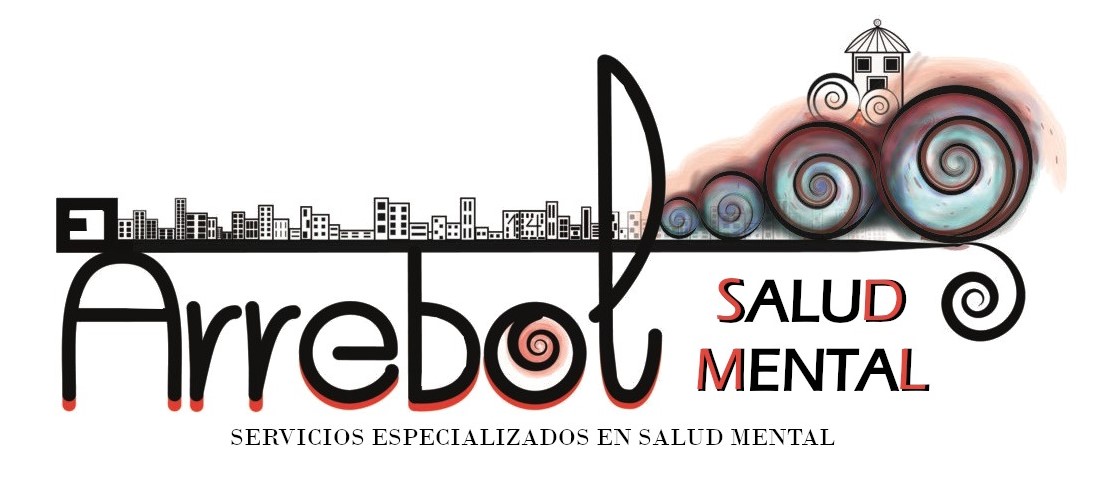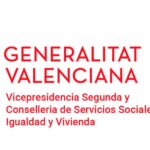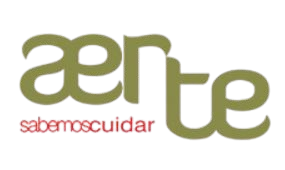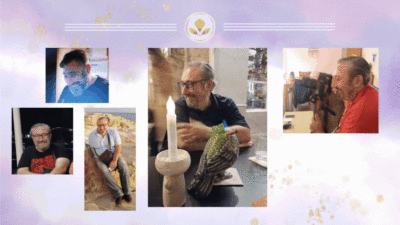







Any person, man or woman, between 18 and 65 years old and with a recognized mental health diagnosis, can apply for a place in this resource, either on their own initiative, by contacting us, or by delegating this task to the basic technician. teams with which they will have a relationship through their Social Center, Health Center, Mental Health Unit or any other socio-health facility (CEEM, Day Hospital, etc.) involved in their process.
Before joining the programme, candidates are interviewed to determine their suitability and need for the position offered. The objective is to get to know each other and be willing to resolve doubts and clarifications that allow, on the one hand, the candidate to know the day-to-day organisation system, the rules established for coexistence, the requirements and rights, and, on the other hand, to let the technical team know what are the expectations and motivations that lead the candidate to consider their incorporation into the resource desirable.
The main key to determining whether to join the resource is always the candidate and the fit of his or her expectations and motivation. In all cases, it must be a decision made with complete freedom and driven by one’s own desire. Based on this premise, other issues that we value and that define the incorporation profile are those defined through the following characteristics:
– Aimed at men and women between 18 and 65 years old with a mental health diagnosis.
– People undergoing psychiatric treatment and monitoring whose psychopathological situation is stable, maintaining regular contact with their reference Mental Health Service.
– Men and women with temporary housing needs in social resources (long-term for cases seeking community reintegration, or as a temporary stay for cases of family respite) for training in basic activities of daily living and instrumental activities for execution in the community environment.
– Present a minimum level of personal and social autonomy that allows them to accept the demands of living and coexisting in the apartment.
– Not present aggressive or dangerous behaviour patterns for themselves or others. Nor serious problems with drug addiction or alcoholism (previous treatment being necessary).
– Have minimum financial resources that allow you to make monthly payments for the service received, and meet personal expenses.
– Being in need of accommodation and support and not having, due to absence, inadequacy or impossibility, a family environment that provides the necessary support to live with an acceptable quality of life.
Accept the linking of your process with participation in external resources, whether in the specific area of mental health (CRIS, CD) and/or in a normalized community environment, as determined by therapeutic convenience at each moment of the process.
You can apply for a place in the resource directly or you may be assigned one by right through recognition of the degree of dependency. In any case, your situation will be studied in the Department of Functional Diversity, in the section for people with a mental health diagnosis, which will facilitate the search for alternatives to your request. At El Arrebol, an Evaluation Commission with the Institution is not required as a condition to endorse the incorporation of a user, however, coordination between both devices is common to share the occupancy status of the places, and thus facilitate their availability when they become vacant.
Once the situation of the candidates applying for the vacant post has been assessed, an interview is held with the educational team, in order to meet them personally, exchange impressions, resolve doubts, etc. Two issues are essential at this point. The initial stage of the process:
All you need to do is meet these requirements. For all other challenges that arise in the process, you can count on El Arrebol professionals to deal with them in the best possible way.
Every user who joins the resource does so because they freely choose this option. It is very important to have motivation to test oneself and face the challenges inherent in living with a group of new people with whom you share similar life circumstances.
It is usually estimated that the average time needed for a user to take advantage of the resource and achieve the final objective of being discharged and living in circumstances of greater independence and autonomy is between two and a half and three years. In practice, it is common for the time to be relative to the needs of each person, and there may be cases in which people do not need more than a year to successfully put into practice the skills necessary to face the activities of daily life, while other people may require more time than expected because their need for support is greater. In any case, going through the resource is always an enlightening experience, either because the obstacles that prevented them from taking care of themselves with solvency are overcome, or because accepting the existence of these obstacles, the objective changes and focuses its efforts on defining the support that must be provided to enable a life that, despite the need for care interventions, continues to gain independence with respect to the initial situation when entering the resource.
It is also important to have the financial resources to cover the monthly fee. In 2024, the price is €2,350 (VAT included) and is usually associated with a service-related benefit (PVS). To obtain this benefit, it is necessary to have been recognised as Dependent (at least Grade 1), which will allow the majority of the fee to be covered, which must be supplemented by contributions from one’s own income, if it is not fully covered.
The process in “el Arrebol” concludes with the granting of discharge or discharge from the resource. A person who leaves the program is considered discharged for having met the objectives set from the resource, when he or she has acquired sufficient autonomy to be able to function and manage a home normally or return to the family home. Therefore, he or she is considered discharged, on the one hand, when these objectives have been met, and discharged for partial fulfillment of objectives, on the other hand, when a modification occurs during the course of the therapeutic process of the initial incorporation approaches, achieving objectives not initially foreseen or because the process is suspended when the user leaves. A person who leaves the program is considered discharged because the expected objectives of acquiring autonomy have not been achieved, or because the user himself or herself has left it voluntarily or involuntarily.
The design of the exit process for those users who have managed to meet the objectives of integrating independent living habits during their stay is developed following an intervention model that facilitates the progressive transition from the resource to independent housing with the aim of preparing the user for the new circumstances, allowing a progressive adaptation, evaluating the new needs and difficulties that may arise during the process and allowing the transition of technical references since, although the users become independent from the resource, they have the right to continue receiving lifelong monitoring by the technical teams of the Mental Health Units.

Cualquier persona, hombre o mujer, entre 18 y 65 años y con diagnóstico de salud mental reconocido, puede solicitar una plaza en este recurso, bien por iniciativa propia, contactando con nosotros, o delegando esta tarea en el técnico básico. equipos con los que tendrán relación a través de su Centro Social, Centro de Salud, Unidad de Salud Mental o cualquier otro centro sociosanitario (CEEM, Hospital de Día, etc.) implicado en su proceso.

Antes de incorporarse al programa, los candidatos son entrevistados para determinar su idoneidad y necesidad para el puesto ofrecido. El objetivo es conocerse y estar dispuesto a resolver dudas y aclaraciones que permitan, por un lado, al candidato conocer el sistema de organización del día a día, las normas establecidas para la convivencia, los requisitos y derechos, y , por otro lado, hacer saber al equipo técnico cuáles son las expectativas y motivaciones que llevan al candidato a considerar deseable su incorporación al recurso. La clave principal para determinar si unirse al recurso es siempre el candidato y el ajuste de sus expectativas y motivación. En todos los casos debe ser una decisión tomada con total libertad e impulsada por el propio deseo. Partiendo de esta premisa, otras cuestiones que valoramos y que definen el perfil de incorporación son las que se definen a través de las siguientes características: – Dirigido a hombres y mujeres entre 18 y 65 años con diagnóstico de salud mental. – Las personas en tratamiento y seguimiento psiquiátrico cuya situación psicopatológica sea estable, manteniendo contacto periódico con su Servicio de Salud Mental de referencia.

No presentar patrones de conducta agresivos o peligrosos para sí mismos o para los demás. Tampoco problemas graves de drogadicción o alcoholismo (siendo necesario tratamiento previo). – Contar con recursos económicos mínimos que le permitan realizar pagos mensuales por el servicio recibido, y cubrir gastos personales. – Estar necesitado de alojamiento y apoyo y no disponer, por ausencia, insuficiencia o imposibilidad, de un entorno familiar que le proporcione el apoyo necesario para vivir con una calidad de vida aceptable.

Aceptar la vinculación de su proceso con la participación en recursos externos, ya sea en el área específica de salud mental (CRIS, CD) y/o en un ambiente comunitario normalizado, según lo determine la conveniencia terapéutica en cada momento del proceso. Open in Google Translate • Feedback

Puedes solicitar una plaza en el recurso directamente o te la pueden asignar por derecho mediante el reconocimiento del grado de dependencia. En cualquier caso, su situación será estudiada en el Departamento de Diversidad Funcional, en el apartado de personas con diagnóstico de salud mental, lo que facilitará la búsqueda de alternativas a su solicitud. En El Arrebol no se requiere una Comisión Evaluadora con la Institución como condición para avalar la incorporación de un usuario, sin embargo, es común la coordinación entre ambos dispositivos para compartir el estado de ocupación de las plazas, y así facilitar su disponibilidad cuando queden vacantes. . Una vez valorada la situación de los candidatos que optan a la plaza vacante, se realiza una entrevista con el equipo educativo, con el fin de conocerlos personalmente, intercambiar impresiones, resolver dudas, etc. Dos cuestiones son fundamentales en este punto. La etapa inicial del proceso: Todo lo que necesitas hacer es cumplir con estos requisitos. Para todos los demás desafíos que surjan en el proceso, puedes contar con los profesionales de El Arrebol para afrontarlos de la mejor manera posible.
- Todo usuario que se suma al recurso lo hace porque elige libremente esta opción. Es muy importante tener motivación para ponerse a prueba y afrontar los desafíos inherentes a vivir con un grupo de personas nuevas con las que comparte circunstancias de vida similares.
- Se suele estimar que el tiempo medio necesario para que un usuario aproveche el recurso y consiga el objetivo final de tener el alta y vivir en circunstancias de mayor independencia y autonomía es de entre dos años y medio y tres. En la práctica, es habitual que el tiempo sea relativo a las necesidades de cada persona, pudiendo darse casos en los que las personas no necesiten más de un año para poner en práctica con éxito las habilidades necesarias para afrontar las actividades de la vida diaria. mientras que otras personas pueden requerir más tiempo del esperado porque su necesidad de apoyo es mayor. En cualquier caso, recorrer el recurso siempre es una experiencia esclarecedora, ya sea porque se superan los obstáculos que les impedían cuidarse con solvencia, o porque aceptando la existencia de esos obstáculos, el objetivo cambia y centra sus esfuerzos en definir el apoyo que se debe brindar para posibilitar una vida que, a pesar de la necesidad de intervenciones asistenciales, siga ganando independencia respecto de la situación inicial al ingresar al recurso.
- También es importante contar con los recursos económicos para cubrir la cuota mensual. En 2024, el precio es de 2.350 € (IVA incluido) y suele ir asociado a una prestación relacionada con el servicio (PVS). Para obtener esta prestación es necesario haber sido reconocido como Dependiente (al menos Grado 1), lo que permitirá cubrir la mayor parte de la cuota, que deberá complementarse con aportaciones de los propios ingresos, en caso de no estar totalmente cubierta.

El proceso en “el Arrebol” concluye con el otorgamiento de la baja o alta del recurso.
Una persona que abandona el programa se considera dada de alta por haber cumplido los objetivos fijados desde el recurso, cuando ha adquirido la autonomía suficiente para poder funcionar y gestionar con normalidad un hogar o regresar al hogar familiar. Por tanto, se considera dado de alta, por un lado, cuando se han cumplido dichos objetivos, y dado de alta por cumplimiento parcial de objetivos, por otro lado, cuando se produce una modificación en el transcurso del proceso terapéutico de los planteamientos iniciales de incorporación. , consiguiendo objetivos no previstos inicialmente o porque el proceso se suspende cuando el usuario se marcha.
Una persona que abandona el programa se considera dada de baja porque no ha alcanzado los objetivos esperados de adquisición de autonomía, o porque el propio usuario lo ha abandonado voluntaria o involuntariamente.
El diseño del proceso de salida de aquellos usuarios que han conseguido cumplir los objetivos de integración de hábitos de vida independientes durante su estancia se desarrolla siguiendo un modelo de intervención que facilita la transición progresiva del recurso a la vivienda independiente con el objetivo de preparar al usuario para la salida. nuevas circunstancias, permitiendo una adaptación progresiva, evaluando las nuevas necesidades y dificultades que puedan surgir durante el proceso y permitiendo la transición de referencias técnicas ya que, si bien los usuarios se independizan del recurso, tienen derecho a seguir recibiendo un seguimiento permanente por parte de los técnicos. equipos de las Unidades de Salud Mental.






